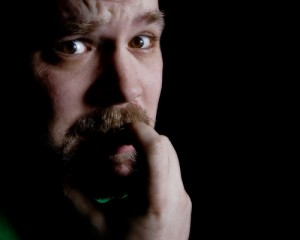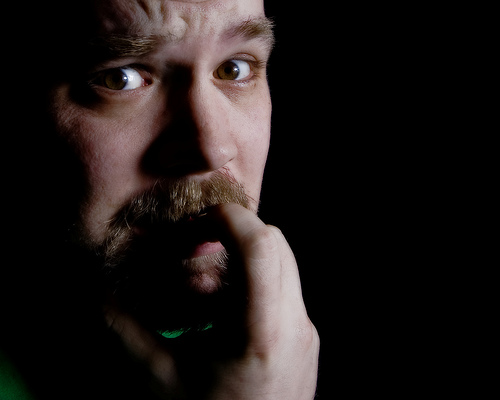
Second interviews are the next phase in that conversation called the hiring process. And when you get closer to your goal of landing the right fit job for you, you can get nervous. The stakes feel so much higher.
I find that my nerves are calmed when I do two things:
- prepare as well as possible for what will happen in the interview; and
- remember that I too am interviewing them to make sure I really want the job.
The first gives me a script or at least a set of expectations. The second gives me some power and eases my fear and sense of desperation. Because if it turns out I don’t like the people in the second interview, then it’s not the job for me.
A second interview saved me from taking a job that would have been really toxic. Years ago, I interviewed for a Director position reporting to the CEO. We hit it off immediately. I liked him, the job seemed completely do-able and the work and organization really appealed to me. He was very enthusiastic about me, and scheduled a second interview on the spot. I went to the second interview prepared to have a good working session, showing him some of my thoughts for the job, my ideas about the first 90 days, my goals. I walked in and almost at once knew that I was in the presence of a completely different persona. Same person, but rude, insulting, critical, nasty. I handled his challenging questions well, even though I was quite thrown off and upset. Where was the great person and visionary leader I met? When he abruptly ended the interview, I left with great relief. There was no way I would work for that man.
I was glad we’d had a second interview, because I learned a lot more vital information. Had he offered me the job after just the first interview, I would have accepted and been very sorry. As it was, he reached out to apologize for his behavior and not too much later, he left the organization to get treatment for bipolar disorder. I’d witnessed untreated behavior. And I am so grateful for the second interview, for my sake. I got to identify a serious inconsistency.
When you are invited back after the first interview, it means you’ve connected with the person or people conducting that interview. You answered the questions well enough to give them confidence that you can do the job. And you had a good human interaction – the person or persons thought you were the kind of person they’d want to work with. Hopefully, you liked them and what you learned about the job, and continue to be interested.
Part of the reason for a second, third and more interviews is to get a consistent sense of the candidate.
The first big hurdle is over. Chances are you prepped like mad for the first interview, so you now wonder what they could ask in the second interview. That of course depends on who the second interview is with.
Second interview with same person/people: This is the time to go deeper – on both sides. You and the potential employer want to know more about each other. A client is interviewing again with the same set of people. Those people want to explore further some of the answers she gave in the first interview. The first Q&A was simply exposing the tip of the iceberg. Now it’s time to find out more detail. You and the interviewers will gather more information about each other.
- Some interviewer questions are:
- Exactly HOW did you do this project/activity/task? Remember, details bring something to life. When I say “I made sure to talk to staff, Board, key funders, and our biggest customers and get their input,” it means more than saying “I talked to key stakeholders.” Don’t make the interviewer ask the follow-up question “who were those stakeholders?” It annoys them to have to do so much work. If it feels like “pulling teeth” to get information from you in an interview, they can only imagine it will be worse if you get the job. After all, in an interview, you’re on your best behavior.
- What were some OBSTACLES and how did you overcome them? This is a chance to tell a story about your determination, ingenuity, ability to leverage resources, build a team, achieve a goal. I recommend being kind when talking about people who constituted an obstacle. Too much complaining about other people is a red flag that you’ll complain about them, and that you’ll be a whiner and finger-pointer. Most people don’t mean to be obstacles, so you can demonstrate your sense of perspective by saying something about how their position or company put them in that position and you were able to work with them to resolve it.
- Do you have a vision for how you’d do your job? What do YOU think is success?A vision is simply looking at what is and coming up with possibilities for the future, building from the now. If you have a sense of key issues the position will face, your vision is to resolve those, or at least make progress toward resolvign them. If you know the vision of the organization or company, you’ll base your vision on that. For example, if you are hired as a project manager, your vision is to complete projects that deliver complete customer satisfaction. If you’re hired as a marketing person, your vision is to build awareness and drive more sales. That’s very simplistic, yet it is directionally correct – build on the idea of heading in a positive direction. If you don’t know the key issues, do some more homework by reading the website and searching for news items. And if you really don’t know, ask at this second interview: “my vision is dependent on knowing the key issues facing this position. I know that obviously you’ll want me to deliver projects on time and under budget – is that correct? – yet there must be specific issues and circumstances you face. Could you tell me about that?”
- Expect some scenario questions, as in “what would you do if this situation was before you?” Chances are the company has faced a similar situation, so this is a way for you to gather information about what the job will really be like. Interviewers ask this question to see how you think, how you solve problems, the steps you will take, the assumptions you’ll make, the elements you will consider.
- This is an appropriate time for you to ask some questions:
- What will success in this job look like at the end of a year? Ideally, you’ll have a conversation with the interviewer, where you both are engaged in discussing something of mutual interest.
- By this point you’ll have come to some conclusion about the main issues affecting the organization. Make sure you test that assessment by asking the interviewer what s/he thinks are the main issues. Ask why. Ask what approaches they’ve taken.
Second interview with different person/people: Assume the initial interviewer was taking copious notes on your answers and passed those on, along with their assessment of your presentation, demeanor, attitude, and personality. The initial interviewer is a trusted intermediary for the ultimate decision-makers, so their input is valued. It’s safe to assume, however, that the next person or group you meet with will have some skepticism about your qualifications and “culture fit” simply because it’s human nature not to trust someone else’s word. Most of us have to experience someone or something to really understand it. And that’s why this kind of second interview will involve repeat questions from the first one. Be prepared to give fullers answer, with some more details. You will also be asked some of the same expanded questions discussed above. And you can ask questions, too.
For either situation, remember:
- Do more homework on the organization. You can even think about how you’d approach the first 90 days. This gets you to visualize yourself in the job, so you feel and appear comfortable and confident.
- You can refer to the first interview when answering questions with a simple “as I said to so-and-so last week,” as long as you answer the question again.
- Breathe. Take your time. You get to think about your answer for a couple of seconds.
- Laughter is a good thing. If you naturally have a sense of humor and can use it while answering questions seriously, go for it! It puts you and the interviewers at ease.
- Remember that the employer needs and wants to hire someone. Why not you?
- You are not desperate. You want the “right fit” job, not just any job.
- Assume you can do the job. You wouldn’t have gotten the second interview if you couldn’t – the interviewer would have sussed that out fast.


